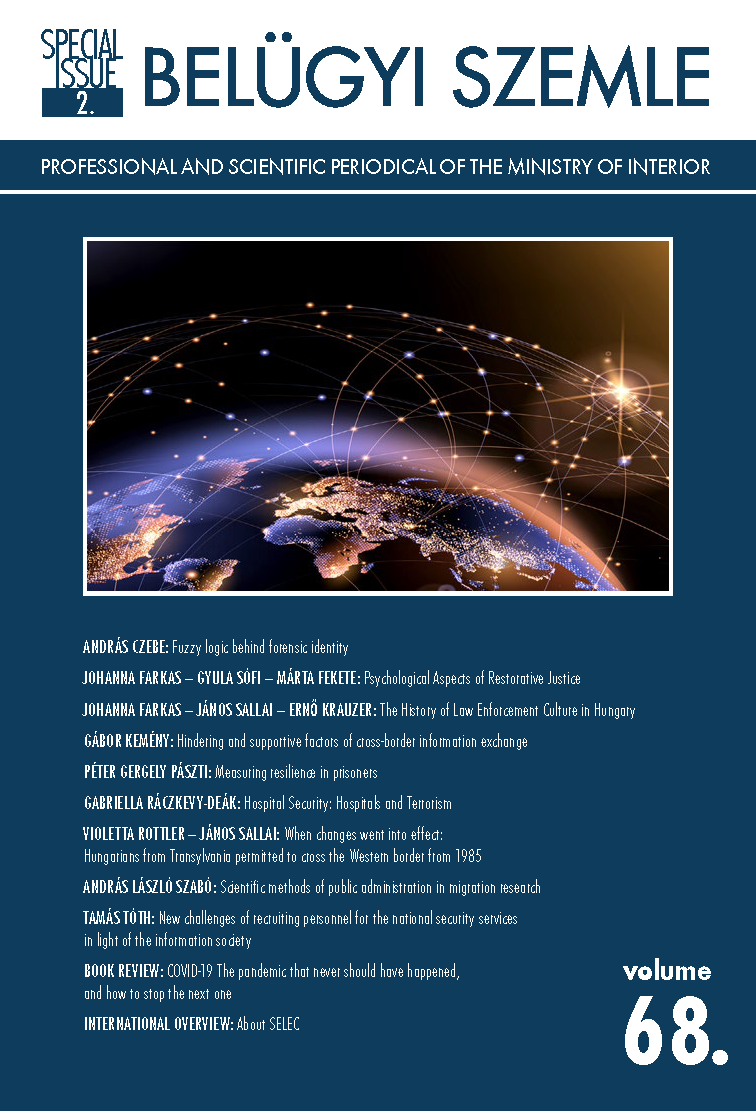Abstract
Besides the traditional methods of jurisdiction restorative justice techniques (e.g. mediation, family group conferences), that focus more on the interests of the victim and the accused, have come into the light lately. These methods create circumstances under which a common discourse is established, the position and needs, the motivations of both the victim and the offender may surface. In the process there is an opportunity to express emotions and thoughts that eventually result in the emergence of psychodynamics on the level of both the individual and the community. Therefore, there are significant psychological moments in the background of restorative techniques. Being based on the professional literature and studying them, are fully relevant. We have analysed six factors where researches have shown positive effects. (1) We take into consideration the active involvement of the participants, which clearly defines the exercise of the „influence on my own destiny” as opposed to the “experience of own vulnerability”. (2) The area of morality, apology and forgiveness may become important. (3) Expressing the emotions by the offender the victim provides an opportunity to resolve any frustration. (4) Expressing the offender’s motivations gives the victim an opportunity to understand the hidden factors. (5) In addition, emphasis will be placed on offering and, where appropriate, accepting reparation. (6) Finally, the emotions of the involved may change, into the direction of a positive vision.

